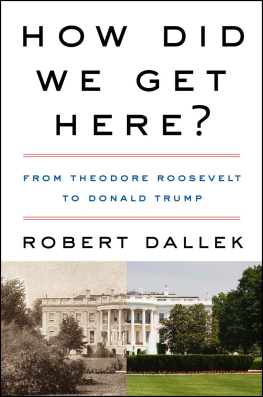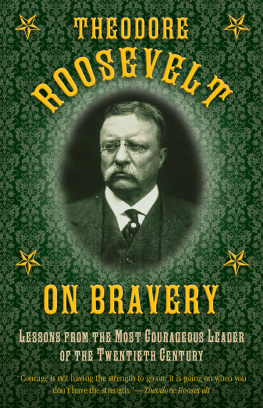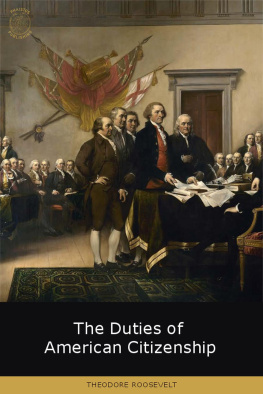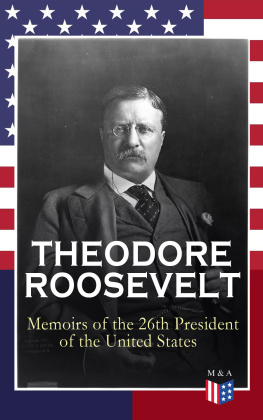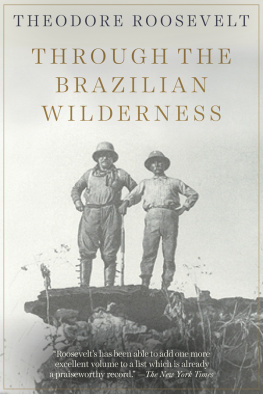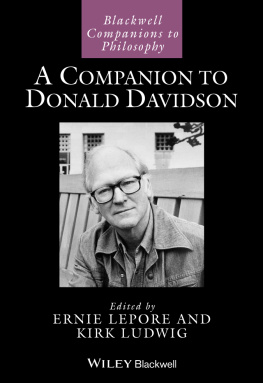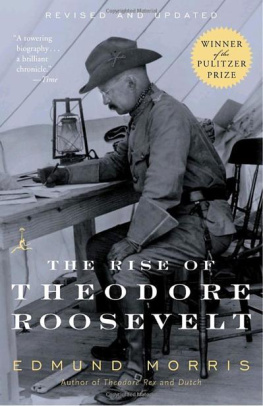Theodore Roosevelt, twenty-sixth president of the United States (190109), was born October 27, 1858, and died January 5, 1919. His sixty years spanned the period from the Civil War to the end of the First World War.
Roosevelt entered political life in 1881. From then until his death, he never ceased to be involved with politics, either as an office holder or a candidate for office, an administrator or manager, or as a national leader and irritant to Republican Party stalwarts. He was, successively, New York State assemblyman, 1882-84, candidate for New York mayor, 1886, U.S. civil-service commissioner, 1889-94, New York City police commissioner, 1895-97, assistant secretary of the navy, 1897-98, governor of New York State, 1899-1900, vice president of the United States, 1901, and then president, 1901all of this by the age of forty-two.
Roosevelt was a complex man. To his career as politician can be added rancher, historian, naturalist, soldier, and explorer. Finally, and not least, he was a literary man, undoubtedly the best among our presidents, not excluding Jefferson, Adams, Madison, Lincoln, and Wilson. He was the author of published histories (The Naval War of 1812, 1882; The Winning of the West, 1889-96; New York, 1891), biographies (Gouverneur Morris, 1888; Thomas Hart Benton, 1887; Oliver Cromwell, 1900), papers in natural history (Protective Coloration, 1910) and exploration (Through the Brazilian Wilderness, 1914) and memoirs and travel narratives (Hunting Trips of a Ranchman, 1885; Ranch Life and the Hunting Trail, 1888; African Game Trails, 1910) and numerous book reviews and reflective essays. To these must be added voluminous letters, speeches, addresses, and his own marvelous memoirs, Theodore Roosevelt: An Autobiography, 1913. His collected works, published in 1926, ran to twenty-four volumes. Much has been added to the record since his death. Eight volumes of his correspondence have been published in The Letters of Theodore Roosevelt, edited by Elting M. Morison (1951-54), and there have been other collections; taken altogether they still comprise a small sample of those he wrote in his lifetime.
Roosevelts military career was brief, but electrifying. As colonel in the Rough Riders, the volunteer cavalry unit that fought in Cuba during the Spanish-American War, he became a national hero, and fame propelled him into the governorship of New York State and then to the vice presidency.
For an American of his era, Roosevelt had an unusually deep acquaintance with the world. As a child in a wealthy family, he was educated at home, by family and tutors, and twice traveled to Europe, and once to Egypt. He graduated from Harvard University and studied law in New York City. As a young man, he was a rancher and a deputy sheriff in the Dakota Territory; he crisscrossed the United States several times in his political career; he hunted animals everywhere, including Maine and the Adirondacks, the American plains, the Mississippi Valley, the American Southwest, Africa, and South America. He associated with ranchers and hunters and farmers at one end of the social scale and with foxhunters and socialites at the otherand he was friends with all. He could sleep on the ground in the Dakotas and discuss Icelandic sagas in Washington, scale Mont Blanc and swim the Potomac, celebrate with cowboys and address a banquet. He had conquered his fears and was not afraid to descend in a submarine or fly in a rickety airplane, stand up to a lions charge or to corporate America. He could wade in an Amazonian river or deliver a lecture to the American Historian Association, of which he was president.
He was widely known as a politician when a very young man, and the circle of his acquaintances, high and low, was vast. He was deeply liked (and disliked) and admired (and criticized). He spoke and wrote forthrightly, and he loved a good fight. He gave us as legacy the expressions bully pulpit, muckraker, strenuous life, man in the arena, and much more. In his years in the presidency he stood forthrightly for the regulation of corporations, just then developing vast economic powers, and for the preservation of our nations natural resources.
It was his work for conservation that was perhaps his greatest contribution. During his seven-and-one-half years in the White House, Roosevelt placed almost 230 million acres under public protection as national parks, national forests, game and bird preserves, and other federal reservations (a land area equivalent to that of all the East Coast states from Maine to Florida). But he was not single-minded on the subject: his Forest Service also opened up national forests for logging, and his Reclamation Bureau built dams to provide water for farmers.
Roosevelt did not fear to use and expand the power of the presidency, as he did in the building of the Panama Canal or in opposition to European powers, nor to make a show of power by sending the American fleet around the world. His achievements in office included intervention in the anthracite coal strike of 1902, the creation of the Department of Commerce and Labor, enactment of the Elkins Act, the Hepburn Act, the Meat Inspection Act, and the Pure Food and Drug Act. He won the Nobel Peace Prize for negotiating an end to the Russo-Japanese War, and he was a lifelong advocate of a strong navy and national preparedness.
Roosevelt had a large family and reveled in family life. He was married twice. His first wife, Alice Lee, died immediately after giving birth to baby Alice. He married a second time, to Edith Carow, a childhood playmate; they had five children. He delighted in his six children, a rambunctious group, and carried on with them a correspondence both delightful and sensible, and remarkably open and adult.
As a Harvard student, he remarked that he thought he had a second-rate brain but a capacity for action. He was better than that. He once lamented, What is most needed is not the ability to see what very few people can see, but to see what almost anybody can see, but nobody takes the trouble to look at. Roosevelt, as he matured, saw deeply into American society and its problems, and he sought to mobilize the people to deal with them. To us all he gave a remarkable model of the active, engaged citizen, who put his heart and soul into his work, all of it.




